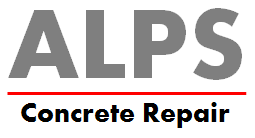Top 10 Legal Questions about Rules and Regulations in Boarding Houses
| Question | Answer |
|---|---|
| 1. Can a boarding house impose a curfew for its residents? | Yes, a boarding house can impose a curfew as long as it is reasonable and does not infringe on the residents` rights. It is essential to consider the safety and well-being of all residents. |
| 2. What are the legal requirements for fire safety in a boarding house? | Boarding houses must comply with local fire safety regulations, including having working smoke detectors, fire extinguishers, and clear emergency exits. It is crucial for the protection of all residents. |
| 3. Can a boarding house evict a resident without notice? | No, a boarding house must follow the legal eviction process, which typically involves providing written notice and allowing the resident a reasonable amount of time to vacate the premises. Proper procedures are necessary to protect the rights of all parties involved. |
| 4. Are boarding house owners responsible for maintaining the property? | Yes, boarding house owners have a legal obligation to maintain the property in a safe and habitable condition. This includes addressing any necessary repairs and ensuring proper sanitation for the health and well-being of the residents. |
| 5. Can a boarding house prohibit certain activities, such as smoking or pets? | Yes, boarding houses can establish rules to prohibit certain activities that may disrupt the peace and safety of the residence. This ensures a harmonious living environment for all residents. |
| 6. What are the legal requirements for security measures in a boarding house? | Boarding houses must take reasonable steps to ensure the security of the premises, such as installing locks on exterior doors and providing adequate lighting in common areas. Safety measures protect the well-being of all residents. |
| 7. Can a boarding house increase rent without notice? | No, a boarding house must provide notice to residents before increasing rent. This allows residents to plan and budget accordingly, maintaining fairness in the landlord-tenant relationship. |
| 8. What are the legal guidelines for guest visits in a boarding house? | Boarding houses can establish reasonable rules for guest visits to ensure the safety and comfort of all residents. It is essential to balance the rights of residents with the need for security and proper management of the property. |
| 9. Can a boarding house refuse to rent to certain individuals? | Boarding houses cannot discriminate against individuals based on protected characteristics such as race, religion, or disability. It is essential to adhere to fair housing laws and treat all potential residents equally. |
| 10. What are the legal requirements for lease agreements in a boarding house? | Boarding houses must have written lease agreements that outline the rights and responsibilities of both the landlord and residents. Clear and comprehensive lease agreements help prevent disputes and protect the interests of all parties involved. |
Discovering the Intricacies of Rules and Regulation in Boarding House
Boarding house living can be an exciting and enriching experience for individuals seeking independence and a sense of community. However, like any living arrangement, it comes with its own set of rules and regulations that govern the conduct of boarders and ensure a harmonious living environment.
The Importance of Rules and Regulation in Boarding House
Rules and regulations in boarding houses are put in place to maintain order, promote safety, and foster a sense of responsibility among boarders. By adhering to these guidelines, boarders can coexist peacefully and make the most of their boarding house experience.
Essential Rules Regulations Boarding House
Here are some common rules and regulations that are typically enforced in boarding houses:
| Rule/Regulation | Description |
|---|---|
| Curfew | Boarders must abide by a designated curfew time to ensure safety and security within the premises. |
| Noise Restrictions | Boarders are expected to keep noise levels to a minimum, especially during quiet hours, to respect the privacy and well-being of others. |
| Visitation Policies | Rules regarding visitation hours and guest policies are set in place to maintain the security and comfort of all boarders. |
| Cleanliness Standards | Boarders are responsible for maintaining the cleanliness of their living areas and communal spaces to promote a hygienic and pleasant environment for all. |
| Respect Others | Boarders are expected to treat each other with respect and consideration, fostering a culture of inclusivity and support. |
Compliance and Accountability
Enforcing rules and regulations in a boarding house is essential to ensure the well-being of all residents. By holding boarders accountable for their actions and promoting compliance with established guidelines, a sense of order and security is maintained within the living community.
Case Study
In a study conducted by the National Boarding House Association, it was found that boarding houses with clearly defined rules and regulations experienced a higher level of satisfaction among residents, leading to improved retention rates and a positive living environment.
Final Thoughts
Understanding the intricacies of rules and regulations in a boarding house is crucial for both boarders and administrators. By fostering a culture of respect, accountability, and compliance, a boarding house can become a thriving and supportive community for all who reside within its walls.
Boarding House Rules and Regulations Contract
Welcome to the official rules and regulations contract for living in our boarding house. This contract outlines the terms and conditions that both parties agree to in order to maintain a safe and harmonious living environment. Please read this contract carefully and ensure that you understand and agree to all the terms before signing.
| Clause | Description |
|---|---|
| 1 | The tenant agrees to pay the agreed upon rent on the first day of each month, failing which a late fee of 10% will be charged. |
| 2 | The landlord agrees to maintain the premises in a habitable condition, including providing essential services such as water, electricity, and heating. |
| 3 | The tenant agrees to abide by all house rules, including noise restrictions, cleanliness standards, and guest policies. |
| 4 | The landlord reserves the right to enter the premises for maintenance and inspection with 24 hours` notice. |
| 5 | The tenant agrees to report any damages or necessary repairs to the landlord in a timely manner. |
| 6 | The landlord reserves the right to terminate the tenancy for violation of the terms of this contract. |
By signing this contract, both parties acknowledge that they have read, understood, and agreed to all the terms and conditions outlined herein.


